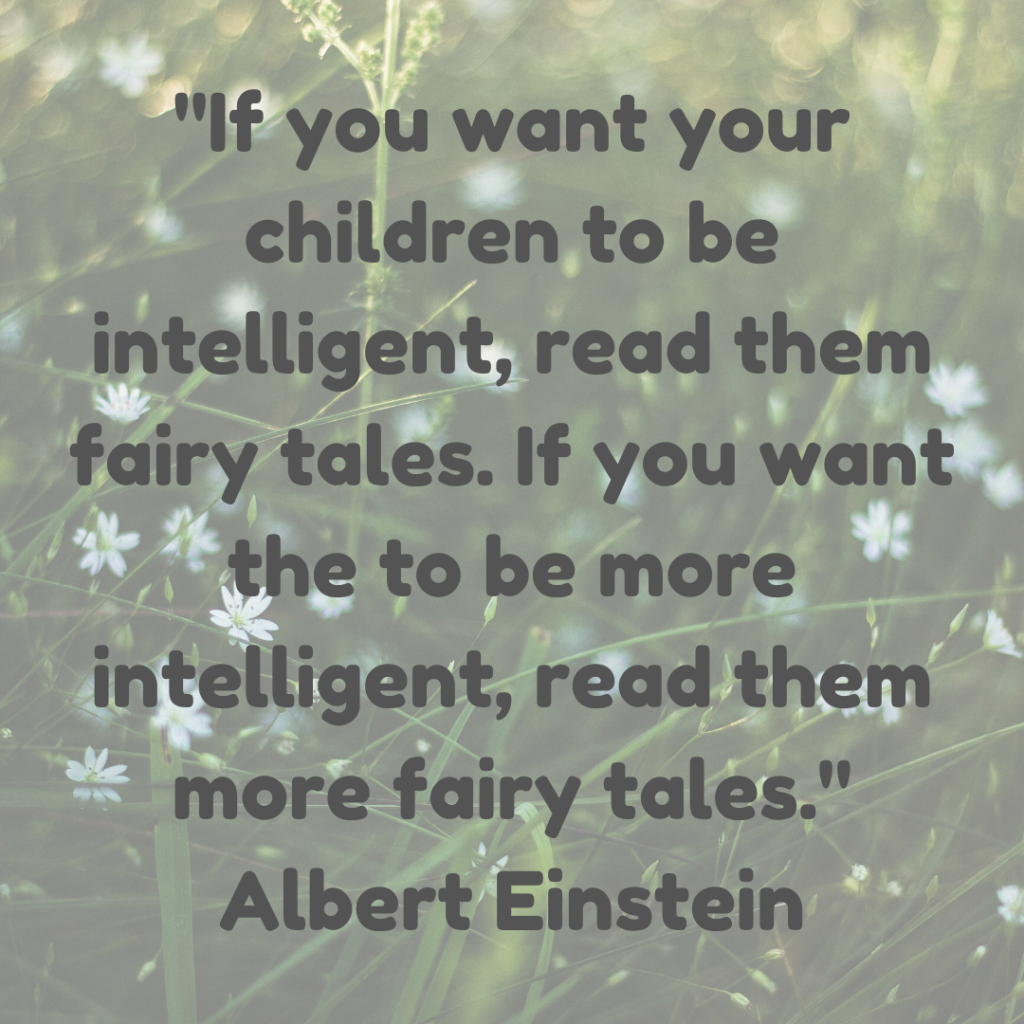
How Fairy Tales Teach Emotional Intelligence
I recently heard a quote by Einstein that intrigued me: “If you want your children to be intelligent, read them fairy tales. If you want them to be more intelligent, read them more fairy tales.”

I immediately went to the library, pulled a bunch of fairy tales off the shelves, and brought them home with every intention to read them aloud to my kids. Unfortunately, it was in the middle of summer, and our read aloud time was pretty much non-existent. All the fairy tales went back to the library without having been read.
Am I really worried about my kids not being intelligent because they haven’t read enough fairy tales? Not really. I’m pretty sure that my kids have been exposed to the most familiar fairy tales—we have a literature-rich home. My goal was more about experience than gaining intelligence points.
Still, the idea of fairy tales increasing intelligence interested me.
I did a little searching and came across an article with 8 reasons why fairy tales are essential to childhood. It was more about emotional intelligence than mental intelligence, but gave a good argument for why we should read fairy tales.
Here are the reasons listed in the article with some examples of fairy tales that teach each lesson.
- Fairy tales show kids how to handle problems
In Hansel and Gretel, the two young children figure out how to get home after being abandoned and how to escape from the witch after being captured. - Fairy tales build emotional resiliency
Emotional resilience refers to a person’s ability to adapt to stressful situations. Cinderella is a good example of this. She maintained a happy attitude even with all the bad things her stepsisters did. - Fairy tales give us a common language
We are familiar with phrases like “just right” and “not by the hair of my chinny-chin-chin” because of fairy tales. - Fairy tales cross cultural boundaries
I love reading the different versions of Little Red Riding Hood. There is a Cajun version, one that takes place in Africa, and another from China. We learn a little bit about the country and culture while reading a familiar story. - Fairy tales teach story—setting, characters, and plot
- Fairy tales develop a child’s imagination
In Jack and the Beanstalk, the reader has to imagine what it would be like to have magic; The Princess and the Frog allows us to imagine that kissing a frog will bring a prince; and after reading Beauty and the Beast we imagine a happily ever after. - Fairy tales give opportunities to learn critical thinking skills
Why did the huntsman allow Snow White to escape? What would you do if you saw the Emperor wearing no clothes? How would you spend your time locked up in a tower all alone? - Fairy tales teach lessons
The reader learns ways to treat and not treat those who look different than you from The Ugly Duckling, the dangers of talking to strangers in Little Red Riding Hood, and the importance of listening to your parents from The Wolf and the Seven Little Kids.
I guess I need to go back to the library.
What is your favorite reason for reading fairy tales?


